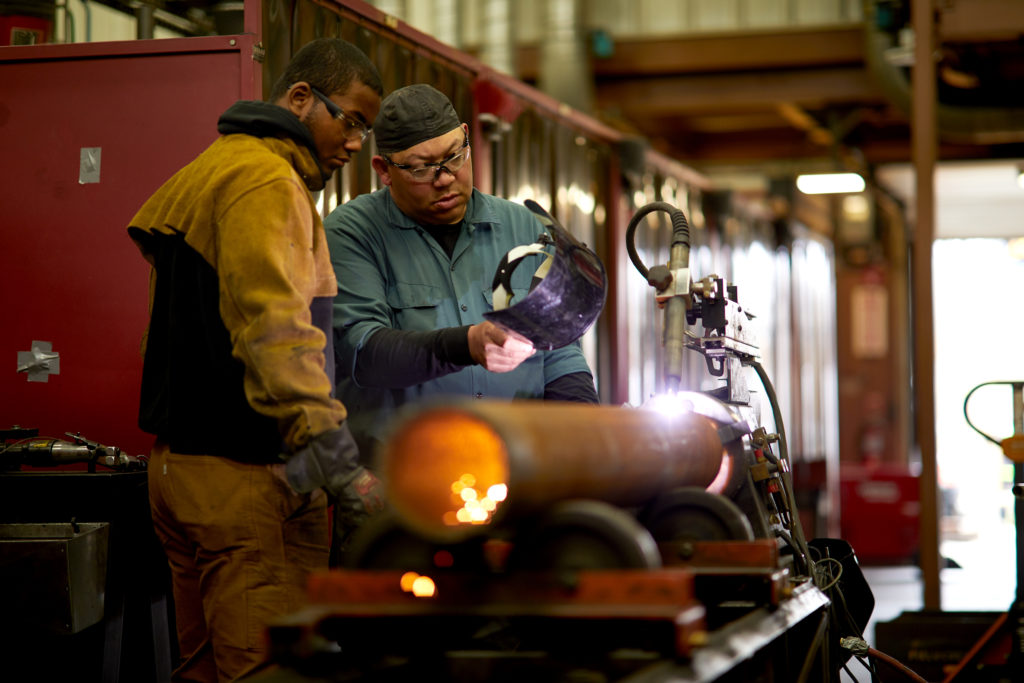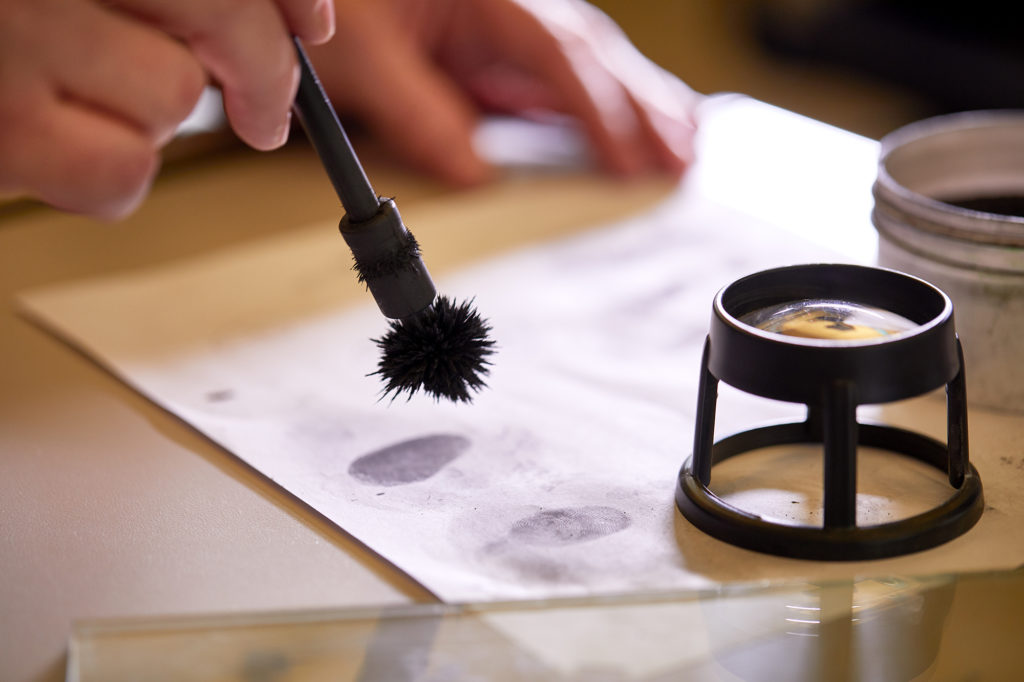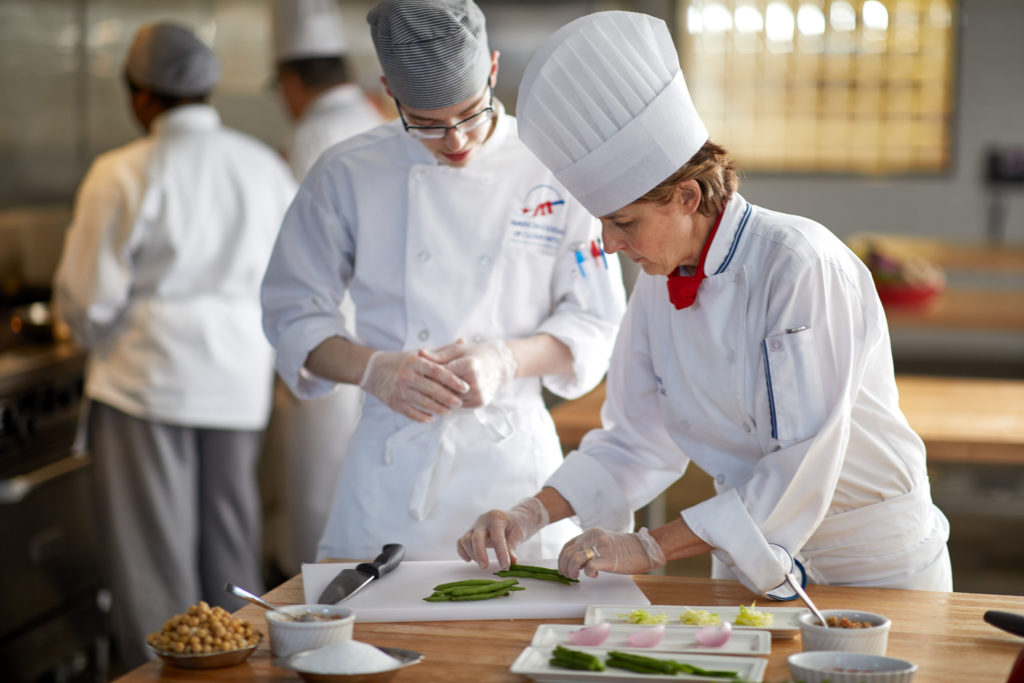Jump start your associate degree or certificate program with convenient courses built around your schedule.
There’s never been a better time to get the skills you need to move up in your career or explore a new field.
PTC is making it easier than ever with a combination of five-week accelerated courses and ten-week courses that can help you tap into new opportunities in high-demand fields like welding, criminal justice, or culinary.
Think of these courses as the start of your pathway to earn an associate degree or certificate:
• First, you’ll enroll in either a certificate or associate degree program, depending on what you want to pursue. You can decide whether you want to remain part-time or switch to full-time to complete your program more quickly.
• Then, you’ll take additional bundled courses, two or three at a time, to keep your course load manageable—all on a convenient evening schedule that works for working adults like you. We’re kicking off this program with five-week courses to give you a jump start now and will offer 10-week courses in subsequent quarters.
Don’t wait to start class in the fall.
Fall into classes right away.
Apply for financial aid even though you’re taking part-time classes.
PTC also offers merit scholarships up to $4,000 annually and need-based grants ranging from $500 to $2,000 annually.
Classes Begin August 22
Get a jump on an education tailored to working adults—no need to wait for an October class start.
Programs to help kick-start your next career move.
Brush up on your skills or learn new ones to help meet demand in fields that need skilled people, fast.
Welding
With more welders retiring and employers seeking skilled new hires to fill hundreds of unfilled positions, it’s time to strike while the iron is hot. All welding equipment will be provided for you on site.
Gas Metal Arc Welding, 3 credits, 2 nights (M/W)
In this course students learn the practices and techniques of Gas Metal Arc Welding. Students learn to weld mild steel and aluminum utilizing fillet and groove welds in all positions. Students are introduced to shielding gases and filler wire associated with GMAW. You’ll also apply the visual inspection process to evaluate welds. Coursework includes equipment inspection, setup, minor repair, and operation. Industry safety standards are reinforced in the shop. This course includes both lab and classroom elements.
Gas Tungsten Arc Welding, 3 credits, 2 nights (T/TH)
In this course students learn the practices and techniques of Gas Tungsten Arc Welding. Students learn to weld mild steel utilizing fillet and groove welds in all positions. You are also introduced to shielding gases and filler wire associated with GTAW, and you’ll apply the visual inspection process to evaluate welds. Coursework includes equipment inspection, setup, minor repair and operation. Topics include selecting proper tungsten and filler metals. Industry safety standards are reinforced in the shop. This course includes both lab and classroom elements.


Criminal Justice
There’s a growing need for professionals in public safety, private security, and more. These courses can be the beginning of your career or give you current best practices if you’re already in the field.
Introduction to Policing 4 Credits, 2 nights (M/W)
Through this course, students will gain a knowledge of the history of policing and what is involved with being a police officer today. Topics examined will include the role of police officers in today’s society, approaches to police operations, and critical issues in policing such as stress, ethics, diversity in hiring, and technology in policing.
Criminal Investigations 4 Credits, 2 nights (T/TH)
This course will provide a practical approach to conducting investigations by instructing students in investigative responsibilities, the methods of conducting investigations for crimes against people and property, and the challenges faced by criminal investigators.
Culinary Arts
Three comprehensive classes give you a taste of the skills you need in the booming culinary arts industry, on a comeback with restaurants clamoring for skilled staff. Culinary knife kits will be provided to the students on site.
Culinary Elements of Wines and Spirits, 2 Credits, 1 night (M)
Students gain an understanding of the important role of wines and spirits in the professional kitchen. They learn to differentiate between the chief wine regions of Europe and America and how to match specific wines to specific foods. Students gain exposure to proper techniques for wine tasting, bottle reading, and front-of-the-house wine service.
Fundamental Concepts of Cooking, 2 Credits, 1 night (T)
This course introduces the student to the underlying principles of the culinary arts profession. Students will become familiar with culinary terminology, industry standards, high-end kitchen equipment, cooking methods, animal proteins, and the many varieties of vegetables and herbs. The hierarchy of the professional kitchen is discussed, including various staff member roles and responsibilities. Students are also exposed to the complex selection, planning, and time management procedures involved in daily kitchen operations.
Basic Knife Skills, 1 Credit, 1 night (W)
This course teaches the student fundamental knife skills used in the culinary arts. Students will learn to identify the different types of knives, their construction, and their use in the kitchen. Students will learn to identify the different types of products used in production and how to prepare them with classical cuts used in culinary preparations.
Steps to Career Success 1, 1 Credit, 2 nights (M/W)
The purpose of this course is to acclimate students to the available resources to maintain their focus on achieving career goals.
